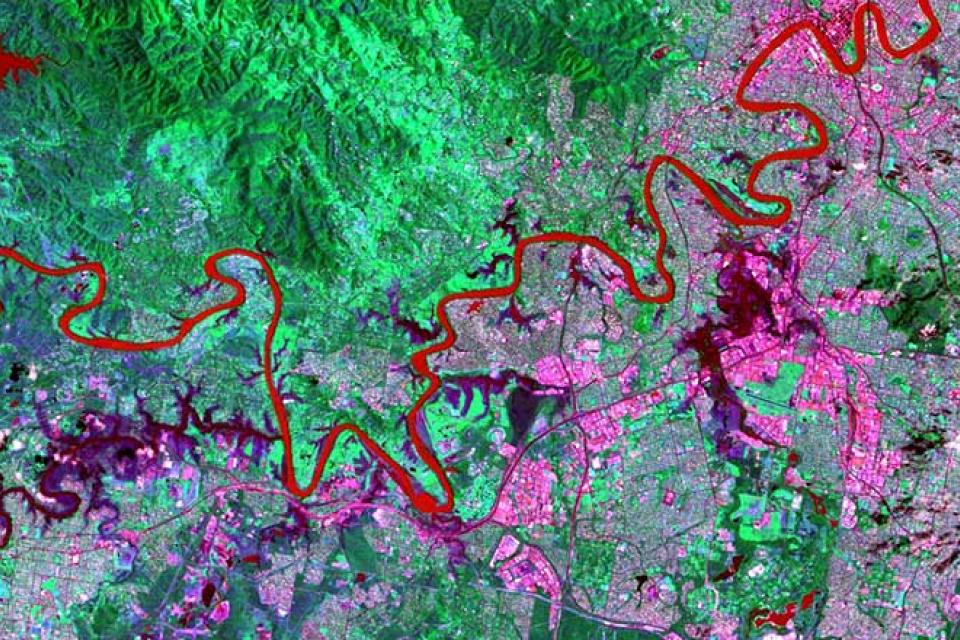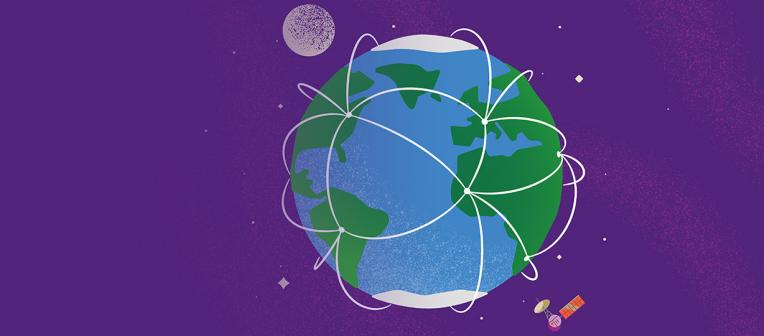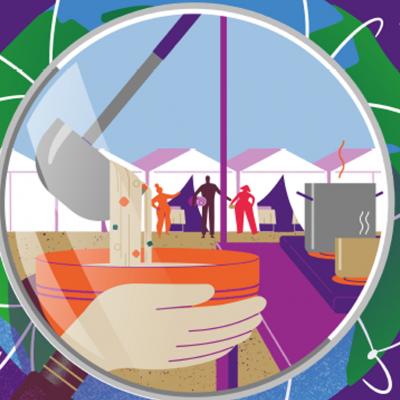From climate change to population growth, our world faces a wide range of contemporary challenges. Geography major graduates are some of the best-placed people to work on solving these problems.
Whether you’re passionate about the environment or fascinated by the phenomenon of globalisation, studying geography at university can equip you with the knowledge and skills to make a difference in the world.
Importantly, though, the capabilities you pick up with a Geography major can be widely applied to all kinds of workplaces. Just like the Bachelor of Arts itself, this major equips you for success in every career you’ll have in your lifetime – not just the job you get after you graduate.
We asked Dr Aude Bernard, a Senior Lecturer in UQ’s School of the Environment and our Geography Major Convener, to share some insights on the major. Let’s explore what you study in geography, why studying geography is important, and some of the careers you could pursue with this major.
Is Geography a good major?
Wondering if geography is a good fit for you? You can start by asking, “Why do we study geography?”.
Some of the top reasons are to address key issues like climate change and population growth, and to improve humanity’s relationship with nature.
If these sound like interesting and rewarding ambitions to you, you may have found the perfect major.
However, Aude is quick to point out that studying geography at university can be valuable for almost anyone. In fact, it can be particularly useful for students who haven’t quite narrowed down their ideal career yet.
“It is a good option for students who have a broad range of interests but are not sure what to do,” she says.
“In our courses, students will be exposed to very diverse topics encompassing physical and human geography, and they’ll be exposed to a wide range of issues that cut across multiple careers.”
So, even if you’ve never been interested in global trends or taken a single hike in the outdoors, it could still be worth considering a major in Geography.
What skills do you get when you study geography?
Aude believes geography majors graduate with transferrable skills that are in high demand from employers in many industries. These naturally include specific technical skills, such as geospatial analysis and fieldwork skills including sample analysis and data analysis.
But geography students also pick up more universal capabilities. For example, by learning how to integrate physical and human interactions, you’ll develop strong critical analysis skills.
“Geography is a broad-ranging subject critical to the challenges of the 21st century, including climate change, population growth and urbanisation, globalisation and economic transformation,” says Aude.
“Our core coursework trains students to integrate their learning in environmental, physical, population and economic geography, and develop transferable skills in data analysis, geospatial technologies, communication and critical thinking.”

With geographic tools such as satellite imagery and remote sensing, you’ll learn to see the world in new ways.
Why is the study of geography important?
There are too many reasons to cover in this small space, but here are a few of the core things that make the study of geography so meaningful.
- Humanity has a fragile relationship with the environments we inhabit. Studying geography is one of the ways in which we can better understand this relationship and take important steps to maintain it. This is true both on a local scale (e.g. conserving our natural treasures in Australia) and a global scale (e.g. monitoring population growth and urbanisation around the world).
- Studying geography can enable us to understand different cultures and, by extension, understand our own culture. This can help us create a global society that’s a little more tolerant, respectful and collaborative.
- Geography has an important role to play in global economics and development. It’s essential that the people in charge of our cities, states and nations are informed about how geographical trends and data can impact (and be impacted by) their decisions.
Geography major careers
Wondering what you can do with a Geography major? This is a little tricky to answer, because there are so many paths you can take – some directly related to geography, and many that aren’t related but still make good use of the skills you’ve learnt.
“Geography doesn’t lead to one career path … it’s the gateway to a wide range of careers, from disaster management to transport and economic planning, conservation and land management,” says Aude.
“Our graduates have found rewarding careers in government agencies (Australian Bureau of Statistics, transport, planning, environment departments), non-profit organisations, and consulting firms in Australia and overseas.”
Geography major jobs
For those with the relevant passions, studying geography can lead to roles including:
- climate change adviser
- sustainability consultant
- park ranger
- wildlife management officer
- national parks conservator
- conservation researcher
- biodiversity project officer
- geography teacher.
However, your career path could be wildly different, depending on your other major or degree (if you study a dual degree).
What do you study in geography?
When you choose the Geography major as part of your UQ Bachelor of Arts, you’ll get to choose from courses such as:
- Environment and Society
- Human Settlements
- The Global Metropolis
- Geography of Australia
- Urban Geography
- Global Population Issues
- Fundamentals of Geographic Information and Technologies
- Geographical Information Systems
- Digital Geographies: Geospatial Data and Analysis
- Economic Geography: Location and Land Use
After completing a Bachelor of Arts majoring in Geography, you may choose to delve deeper with a relevant postgraduate degree, such as a Master of Geographic Information Science or a Master of Urban and Regional Planning.
Learn more about UQ’s Geography major Explore other options in the UQ Bachelor of Arts






